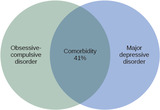
- Subject:
- Psychology
- Social Science
- Material Type:
- Module
- Author:
- OpenStax College
- Date Added:
- 07/18/2021


By the end of this section, you will be able to:Describe the behaviorist perspective on personalityDescribe the cognitive perspective on personalityDescribe the social cognitive perspective on personality

By the end of this section, you will be able to:Discuss the concept of the inferiority complexDiscuss the core differences between Erikson’s and Freud’s views on personalityDiscuss Jung’s ideas of the collective unconscious and archetypesDiscuss the work of Karen Horney, including her revision of Freud’s “penis envy”

By the end of this section, you will be able to:Discuss the Minnesota Multiphasic Personality InventoryRecognize and describe common projective tests used in personality assessment

By the end of this section, you will be able to:Discuss early trait theories of Cattell and EysenckDiscuss the Big Five factors and describe someone who is high and low on each of the five traits

By the end of this section, you will be able to:Define personalityDescribe early theories about personality development

Psychology is designed to meet scope and sequence requirements for the single-semester introduction to psychology course. The book offers a comprehensive treatment of core concepts, grounded in both classic studies and current and emerging research. The text also includes coverage of the DSM-5 in examinations of psychological disorders. Psychology incorporates discussions that reflect the diversity within the discipline, as well as the diversity of cultures and communities across the globe.For more information, visit: OpenStax Psychology

By the end of this section, you will be able to:Distinguish normal anxiety from pathological anxietyList and describe the major anxiety disorders, including their main features and prevalenceDescribe basic psychological and biological factors that are suspected to be important in the etiology of anxiety disorder

By the end of this section, you will be able to:Explain why classification systems are necessary in the study of psychopathologyDescribe the basic features of the Diagnostic and Statistical Manual of Mental Disorders, Fifth Edition (DSM-5)Discuss changes in the DSM over time, including criticisms of the current editionIdentify which disorders are generally the most common

By the end of this section, you will be able to:Describe the nature and symptoms of attention deficit/hyperactivity disorder and autism spectrum disorderDiscuss the prevalence and factors that contribute to the development of these disorders

By the end of this section, you will be able to:Describe the essential nature of dissociative disordersIdentify and differentiate the symptoms of dissociative amnesia, depersonalization/ derealization disorder, and dissociative identity disorderDiscuss the potential role of both social and psychological factors in dissociative identity disorder


By the end of this section, you will be able to:Distinguish normal states of sadness and euphoria from states of depression and maniaDescribe the symptoms of major depressive disorder and bipolar disorderUnderstand the differences between major depressive disorder and persistent depressive disorder, and identify two subtypes of depressionDefine the criteria for a manic episodeUnderstand genetic, biological, and psychological explanations of major depressive disorderDiscuss the relationship between mood disorders and suicidal ideation, as well as factors associated with suicide

By the end of this section, you will be able to:Describe the main features and prevalence of obsessive-compulsive disorder, body dysmorphic disorder, and hoarding disorderUnderstand some of the factors in the development of obsessive-compulsive disorder

By the end of this section, you will be able to:Describe the nature of personality disorders and how they differ from other disordersList and distinguish between the three clusters of personality disordersIdentify the basic features of borderline personality disorder and antisocial personality disorder, and the factors that are important in the etiology of both

By the end of this section, you will be able to:Discuss supernatural perspectives on the origin of psychological disorders, in their historical contextDescribe modern biological and psychological perspectives on the origin of psychological disordersIdentify which disorders generally show the highest degree of heritabilityDescribe the diathesis-stress model and its importance to the study of psychopathology

By the end of this section, you will be able to:Describe the nature and symptoms of posttraumatic stress disorderIdentify the risk factors associated with this disorderUnderstand the role of learning and cognitive factors in its development

By the end of this section, you will be able to:Recognize the essential nature of schizophrenia, avoiding the misconception that it involves a split personalityCategorize and describe the major symptoms of schizophreniaUnderstand the interplay between genetic, biological, and environmental factors that are associated with the development of schizophreniaDiscuss the importance of research examining prodromal symptoms of schizophrenia